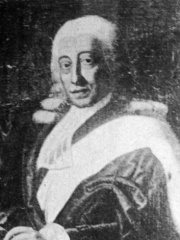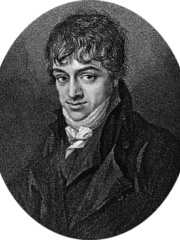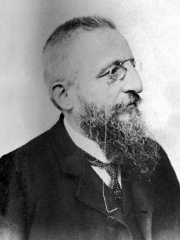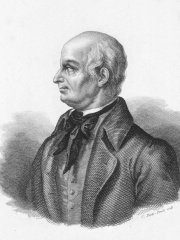
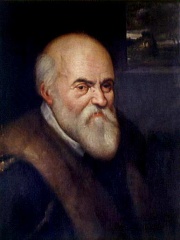
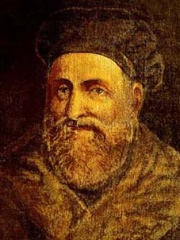
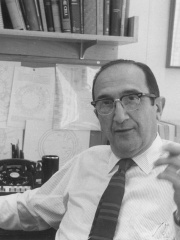
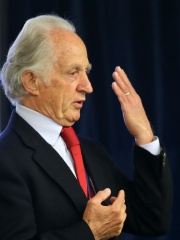
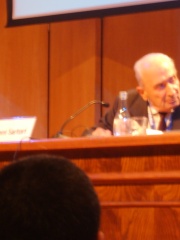
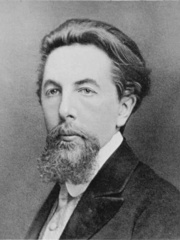
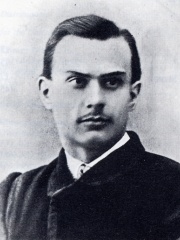
The Most Famous
BIOLOGISTS from Italy
This page contains a list of the greatest Italian Biologists. The pantheon dataset contains 1,097 Biologists, 20 of which were born in Italy. This makes Italy the birth place of the 9th most number of Biologists behind Russia, and Austria.
Top 10
The following people are considered by Pantheon to be the top 10 most legendary Italian Biologists of all time. This list of famous Italian Biologists is sorted by HPI (Historical Popularity Index), a metric that aggregates information on a biography's online popularity. Visit the rankings page to view the entire list of Italian Biologists.

1. Lazzaro Spallanzani (1729 - 1799)
With an HPI of 73.44, Lazzaro Spallanzani is the most famous Italian Biologist. His biography has been translated into 42 different languages on wikipedia.
Lazzaro Spallanzani (Italian pronunciation: [ˈladdzaro spallanˈtsaːni]; 12 January 1729 – 11 February 1799) was an Italian Catholic priest (for which he was nicknamed Abbé Spallanzani), biologist and physiologist who made important contributions to the experimental study of bodily functions, animal reproduction, and animal echolocation. His research on biogenesis paved the way for the downfall of the theory of spontaneous generation, a prevailing idea at the time that organisms develop from inanimate matters, though the final death blow to the idea was dealt by French scientist Louis Pasteur a century later. His most important works were summed up in his book Expériences pour servir a l'histoire de la génération des animaux et des plantes (Experiences to Serve to the History of the Generation of Animals and Plants), published in 1785. Among his contributions were experimental demonstrations of fertilisation between ova and spermatozoa, and in vitro fertilisation.

2. Ulisse Aldrovandi (1522 - 1605)
With an HPI of 70.54, Ulisse Aldrovandi is the 2nd most famous Italian Biologist. His biography has been translated into 38 different languages.
Ulisse Aldrovandi (11 September 1522 – 4 May 1605) was an Italian naturalist, the moving force behind Bologna's botanical garden, one of the first in Europe. Carl Linnaeus and the comte de Buffon reckoned him the father of natural history studies. He is usually referred to, especially in older scientific literature in Latin, as Aldrovandus; his name in Italian is equally given as Aldroandi.

3. Gabriele Falloppio (1523 - 1562)
With an HPI of 68.80, Gabriele Falloppio is the 3rd most famous Italian Biologist. His biography has been translated into 39 different languages.
Gabriele Falloppio (1522/23 – 9 October 1562) was an Italian Catholic priest and anatomist often known by his Latin name Fallopius. He was one of the most important anatomists and physicians of the sixteenth century, giving his name to the fallopian tube.

4. Salvador Luria (1912 - 1991)
With an HPI of 68.24, Salvador Luria is the 4th most famous Italian Biologist. His biography has been translated into 52 different languages.
Salvador Edward Luria (; Italian: [ˈluːrja]; born Salvatore Luria; August 13, 1912 – February 6, 1991) was an Italian microbiologist, later a naturalized U.S. citizen. He won the Nobel Prize in Physiology or Medicine in 1969, with Max Delbrück and Alfred Hershey, for their discoveries on the replication mechanism and the genetic structure of viruses. Salvador Luria also showed that bacterial resistance to viruses (phages) is genetically inherited.
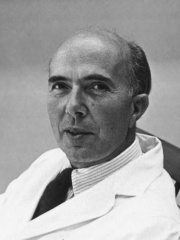
5. Renato Dulbecco (1914 - 2012)
With an HPI of 68.22, Renato Dulbecco is the 5th most famous Italian Biologist. His biography has been translated into 54 different languages.
Renato Dulbecco ( dul-BEK-oh, Italian: [reˈnaːto dulˈbɛkko, -ˈbek-]; February 22, 1914 – February 19, 2012) was an Italian–American virologist who won the 1975 Nobel Prize in Physiology or Medicine for his work on oncoviruses, which are viruses that can cause cancer when they infect animal cells. He studied at the University of Turin under Giuseppe Levi, along with fellow students Salvador Luria and Rita Levi-Montalcini, who also moved to the U.S. with him and won Nobel prizes. He was drafted into the Italian army in World War II, but later joined the resistance.

6. Mario Capecchi (b. 1937)
With an HPI of 68.21, Mario Capecchi is the 6th most famous Italian Biologist. His biography has been translated into 55 different languages.
Mario Ramberg Capecchi (born October 6, 1937) is an Italian-born American molecular geneticist and a co-awardee of the 2007 Nobel Prize in Physiology or Medicine for discovering a method to create mice in which a specific gene is turned off, known as knockout mice. He shared the prize with Martin Evans and Oliver Smithies. He is currently Distinguished Professor of Human Genetics and Biology at the University of Utah School of Medicine.

7. Giovanni Sartori (1924 - 2017)
With an HPI of 67.35, Giovanni Sartori is the 7th most famous Italian Biologist. His biography has been translated into 29 different languages.
Giovanni Sartori (Italian: [dʒoˈvanni sarˈtoːri]; 13 May 1924 – 4 April 2017) was an Italian political scientist who specialized in the study of democracy, political parties, and comparative politics. He held faculty positions at University of Florence, European University Institute, Stanford University and Columbia University.

8. Mikhail Tsvet (1872 - 1919)
With an HPI of 66.30, Mikhail Tsvet is the 8th most famous Italian Biologist. His biography has been translated into 33 different languages.
Mikhail Semyonovich Tsvet, also spelt Tsvett, Tswett, Tswet, Zwet, and Cvet (Russian: Михаил Семёнович Цвет; 14 May 1872 – 26 June 1919) was a Russian-Italian botanist who invented chromatography. His last name is Russian for "colour" and is also the root word of "flower."

9. Odoardo Beccari (1843 - 1920)
With an HPI of 63.97, Odoardo Beccari is the 9th most famous Italian Biologist. His biography has been translated into 26 different languages.
Odoardo Beccari (16 November 1843 – 25 October 1920) was an Italian botanist famous for his discoveries in Indonesia, New Guinea, and Australia. He has been called the greatest botanist to ever study Malesia. The standard author abbreviation Becc. is used to indicate this person as the author when citing a botanical name.
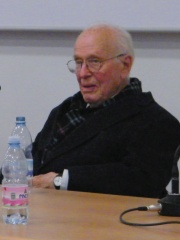
10. Luigi Luca Cavalli-Sforza (1922 - 2018)
With an HPI of 63.78, Luigi Luca Cavalli-Sforza is the 10th most famous Italian Biologist. His biography has been translated into 30 different languages.
Luigi Luca Cavalli-Sforza (pronounced [luˈiːdʒi ˈluːka kaˈvalli ˈsfɔrtsa]; 25 January 1922 – 31 August 2018) was an Italian geneticist. He was a population geneticist who taught at the University of Parma, the University of Pavia and then at Stanford University.
People
Pantheon has 20 people classified as Italian biologists born between 1522 and 1937. Of these 20, 1 (5.00%) of them are still alive today. The most famous living Italian biologists include Mario Capecchi. The most famous deceased Italian biologists include Lazzaro Spallanzani, Ulisse Aldrovandi, and Gabriele Falloppio.
Living Italian Biologists
Go to all RankingsDeceased Italian Biologists
Go to all RankingsLazzaro Spallanzani
1729 - 1799
HPI: 73.44
Ulisse Aldrovandi
1522 - 1605
HPI: 70.54
Gabriele Falloppio
1523 - 1562
HPI: 68.80
Salvador Luria
1912 - 1991
HPI: 68.24
Renato Dulbecco
1914 - 2012
HPI: 68.22
Giovanni Sartori
1924 - 2017
HPI: 67.35
Mikhail Tsvet
1872 - 1919
HPI: 66.30
Odoardo Beccari
1843 - 1920
HPI: 63.97
Luigi Luca Cavalli-Sforza
1922 - 2018
HPI: 63.78
Carlo Allioni
1728 - 1804
HPI: 62.27
Giuseppe Acerbi
1773 - 1846
HPI: 60.40
Pier Andrea Saccardo
1845 - 1920
HPI: 57.74
Overlapping Lives
Which Biologists were alive at the same time? This visualization shows the lifespans of the 17 most globally memorable Biologists since 1700.

